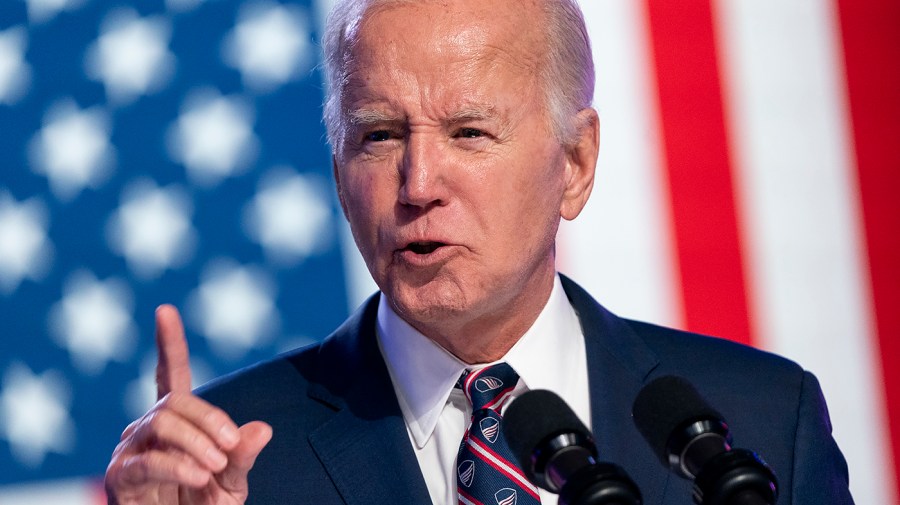
The call highlights ongoing concerns that advocates and some lawmakers have raised about how artificial intelligence (AI) may amplify the spread of election misinformation.
The New Hampshire attorney general’s office said it received complaints about the recorded message that “sounds like the voice of President Biden” but “appears to be artificially generated based on initial indications.”
The attorney general’s office said the call appears to be an unlawful attempt to disrupt the New Hampshire presidential primary election, and encouraged voters to “disregard the content of this message entirely and to send the state information about the call if they received it.”
The organizers behind the campaign to write in Biden’s name in the primary also blasted the robocall. The call was first reported by NBC News.
“This is deep fake disinformation designed to harm Joe Biden, suppress votes, and damage our democracy,” Aaron Jacobs, a spokesperson for the write-in campaign, said in a statement to The Hill.
Jacobs said the call was referred to police so they can determine who was responsible, our colleague Brett Samuels reported.
Public Citizen President Robert Weissman said in a statement the “New Hampshire deepfake is a reminder of the many ways that deepfakes can sow confusion and perpetuate fraud.”
Public Citizen has been leading an effort to push the Federal Election Commission (FEC) to update its rules to address AI in campaign content.
“Unfortunately, the Federal Election Commission is slow-walking the issue – though it’s not too late for the agency to issue needed rules. Congress must act, and there is strong bipartisan support for action, but it would be foolish to bet on congressional action.”
In August, the FEC voted to open a public comment session on a rule clarification that would address the use of AI in campaigns. The public comment period ended in October, but the commission has yet to issue an update.
FEC Chairman Sean Cooksey (R) told The Washington Post last week the commission “will resolve the AI rulemaking by early summer.”













